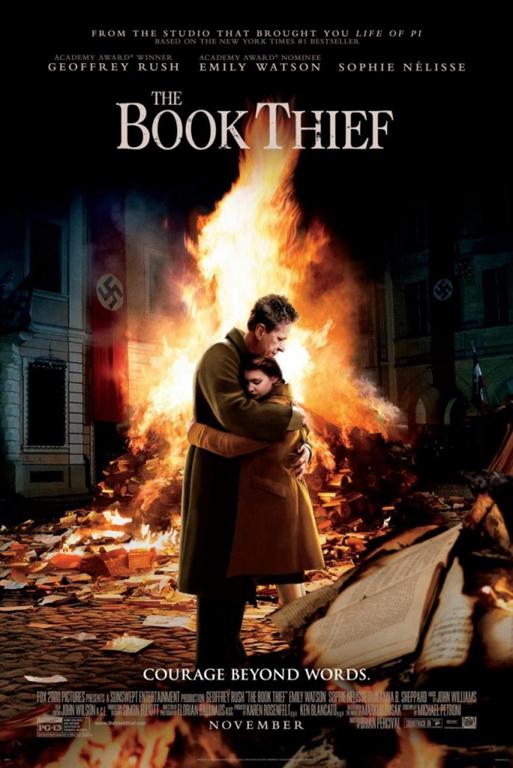 The Book Thief is a story of children swept up in war. Death, who narrates, takes an interest in the vibrantly alive Liesel. In the novel, we see her through Death's eyes. In the film, the voice of Death opens and closes the story, and breaks into the film perhaps half a dozen times. But we see the atrocities of World War II firsthand--Kristallnacht, the carting off of neighbors, Jewish prisoners marched through the streets. Readers can put down the book, take a break. But moviegoers cannot escape the images of cruelty.
The Book Thief is a story of children swept up in war. Death, who narrates, takes an interest in the vibrantly alive Liesel. In the novel, we see her through Death's eyes. In the film, the voice of Death opens and closes the story, and breaks into the film perhaps half a dozen times. But we see the atrocities of World War II firsthand--Kristallnacht, the carting off of neighbors, Jewish prisoners marched through the streets. Readers can put down the book, take a break. But moviegoers cannot escape the images of cruelty.
In the book, Death enables our relationship with Leisel. In the movie, Death must move out of the way. Director Brian Percival reminds viewers--through aerial shots--that we are seeing events through a wider lens; we see what Death sees. Yet there is beauty in the film, too. The laughter of children playing, the pleasures of a snowball fight. The secret kindnesses bestowed onto Liesel by Hans (played with such nuance by Geoffrey Rush), the slow thaw of icy Rosa (portrayed brilliantly by Emily Watson).
Earlier this month, Markus Zusak and Brian Percival spoke with Thelma Adams of Yahoo Movies at New York City's School of Visual Arts Theater in Chelsea. Zusak recalled that he and his wife went on one of their twice-yearly outings to the movies (they have a two-year-old and a seven-year-old) to see Monsieur Lazhar, with Sophie Nélisse as Alice L'Écuyer. "She'd make a great Leisel," Zusak told his wife. "You should tell them," his wife replied. Brian Percival said that he and his team saw 1,000 girls, between self-tapes and casting directors. "Leisel had to be both feisty and vulnerable," he said. They flew Nélisse and three other girls for a test in Berlin. Nélisse is 13 years old, yet her emotional range, conveyed just by the curling of her lip or a twinkle in her eye, is mesmerizing.
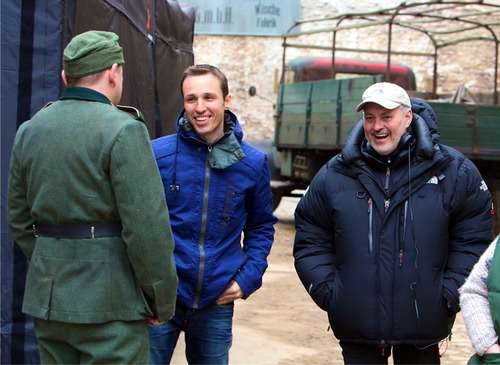 |
|
The Book Thief author Markus Zusak (center) with director Brian Percival (r.) on the Berlin movie set.
(photo: zusakbooks.tumblr.com)
|
Zusak is pleased with the film. If he misses one moment, it's the scene in the book when Liesel sees Max wearing a Star of David and being marched through the streets by the Nazis and she recites to him "The Standover Man"--the story Max wrote and left for her in the painted-over pages of Mein Kampf. But Zusak feels he also gained a scene that he had not written in the book: when Max tells Leisel that everything that lives knows "the secret word for life."
Zusak feels as though he was "a different version" of himself when he wrote The Book Thief. "There are things I'd change, but that could take away the spirit of the book," Zusak said. He's had 10 years of being with the book, writing it, publishing it, bringing it to film. "I thought this would be my least successful book,"
Zusak said. "This book's given me everything. I wrote four books before, but I'm the writer of The Book Thief." He's been writing for the past six to seven years, but hasn't finished another book. "I didn't want to be a dad who goes away," he said. "But I need to block the world out; I have to become the author of something else now."
Zusak's parents couldn't speak English when they moved to Australia. His mother cleans houses; his father is a housepainter. And they told their four children stories.
"To have one great storyteller in your life, you're lucky," said Zusak. "But to have two is amazing. They taught me how to write, how to tell a story, because of their love of stories. I had a huge appetite for those stories, just as Leisel does." Zusak believes his mother and father would not have told their children those stories if they still lived in Europe.
"There's one story that didn't make it into the book," Zusak said. "After the war, Mom's town was occupied by Americans, Dad's by the Russians. My father and his friends were stealing things from the Russian camp, then they'd run. One day, a Russian truck stopped, and a man got out. He stopped, looked at my father, walked up to him, touched his face and said, 'Kind'--child. It suggests what he'd seen and left behind. He got back in his truck and drove off." Zusak paused. "A book is built on what didn't make it in. That's also what holds it up."
This reader missed Death's voice in the film. But Percival explained that he had to show, not tell. "You can't keep inserting Death's voice. That would interfere with our relationship with Leisel," he said. He's right. He added, "You have to see it from Death's point of view, rather than hear it."
Maybe a film is also built on what doesn't make it in. Because the movie ends the way all who loved the book need it to end, and the sparing use of Death's voice makes its appearance at the conclusion that much stronger. --Jennifer M. Brown







SHELFAWARENESS.1222.T1.BESTADSWEBINAR.gif)


 Nearly a thousand
Nearly a thousand  "There's a lot of work to do and we're all busy fundraising, but we're not really in touch with the physical aspect of the typhoon," said Jaime Daez, managing director of
"There's a lot of work to do and we're all busy fundraising, but we're not really in touch with the physical aspect of the typhoon," said Jaime Daez, managing director of  "Everyone is kind of in unison to help out," said Daez. "One of the great traits of the people of the Philippines is, in any kind of catastrophe, they step up and sort of realize their inner hero."
"Everyone is kind of in unison to help out," said Daez. "One of the great traits of the people of the Philippines is, in any kind of catastrophe, they step up and sort of realize their inner hero." "One of our strengths is that we have a very strong graphic novel section," explained Daez. "A lot of the really good comic book artists in the world come from the Philippines; we've done a lot of events over the past few years with local and international artists. Also, I have to admit, it's easier to raise money through artists than authors."
"One of our strengths is that we have a very strong graphic novel section," explained Daez. "A lot of the really good comic book artists in the world come from the Philippines; we've done a lot of events over the past few years with local and international artists. Also, I have to admit, it's easier to raise money through artists than authors."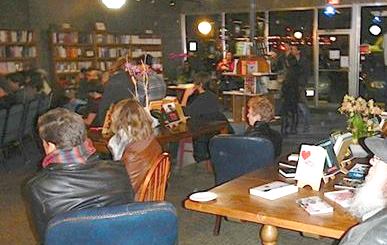 CultureMap observed that "while there is definitely an old Austin, anti-establishment, underground vibe to the space,
CultureMap observed that "while there is definitely an old Austin, anti-establishment, underground vibe to the space, 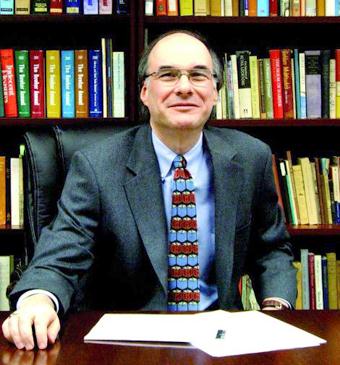 Congratulations to American Booksellers Association CEO Oren Teicher and the ABA board of directors, who were named Publishers Weekly's
Congratulations to American Booksellers Association CEO Oren Teicher and the ABA board of directors, who were named Publishers Weekly's 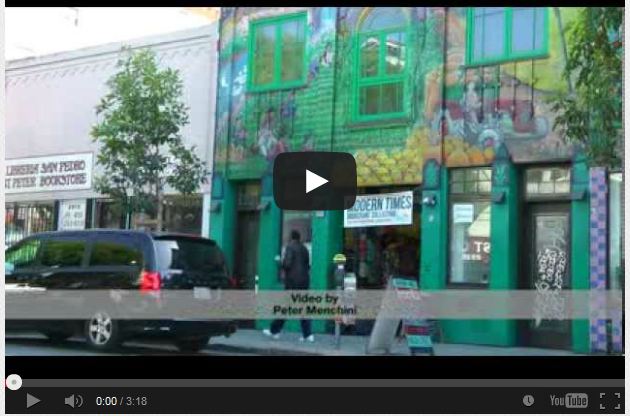
 The University of California Press is selling its downtown Berkeley location at 2120 Berkeley Way and
The University of California Press is selling its downtown Berkeley location at 2120 Berkeley Way and 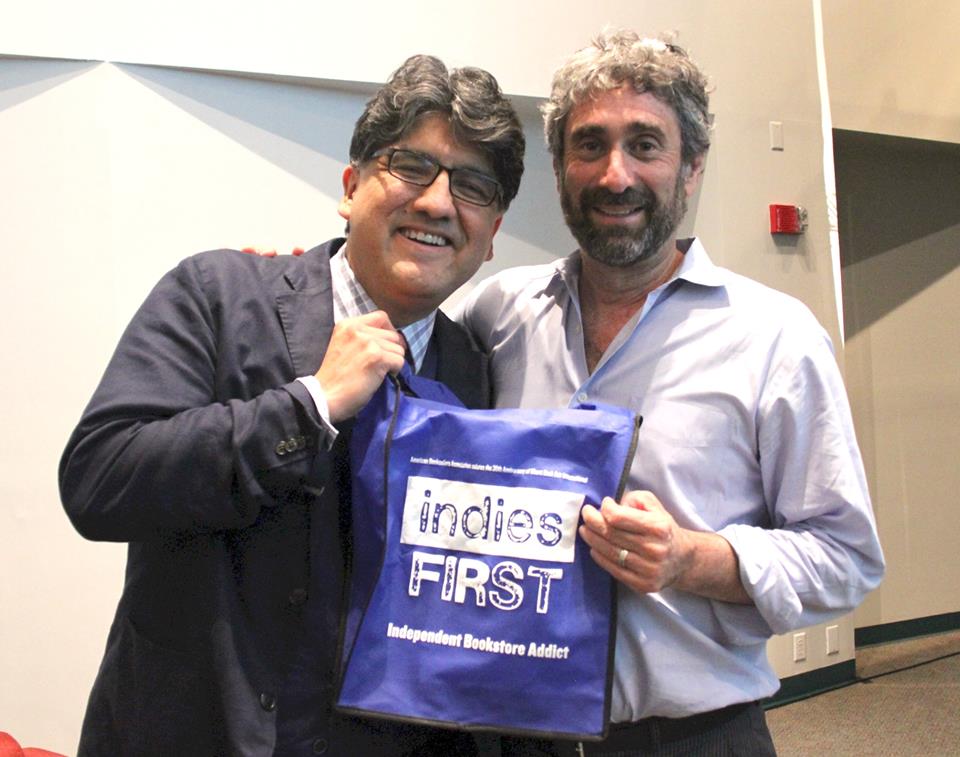 Indies First creator Sherman Alexie and Mitchell Kaplan, owner of Books & Books, at the Miami Book Fair International, gearing up for Indies First Day/Small Business Saturday this coming weekend. They're the first Independent Bookstore Addicts to strike a pose on the
Indies First creator Sherman Alexie and Mitchell Kaplan, owner of Books & Books, at the Miami Book Fair International, gearing up for Indies First Day/Small Business Saturday this coming weekend. They're the first Independent Bookstore Addicts to strike a pose on the 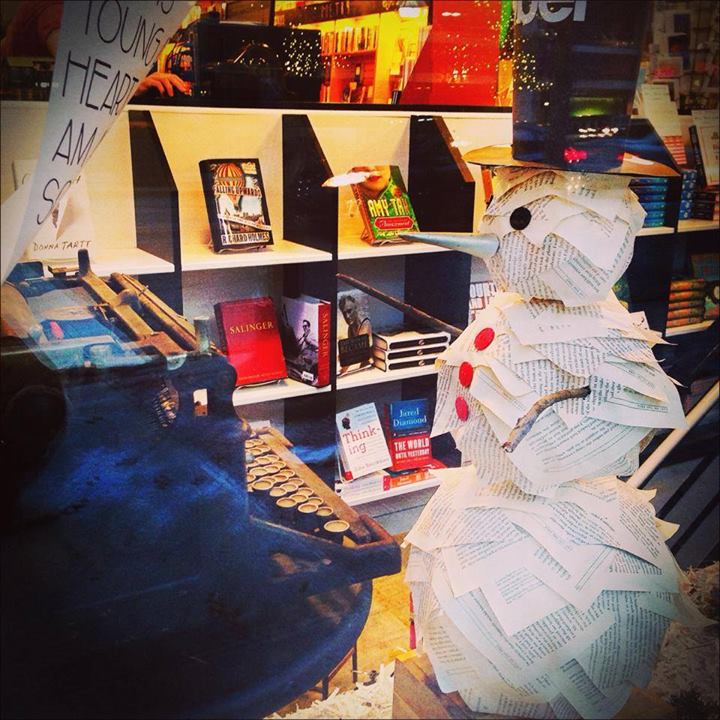 "Meet Robert, our new writer-in-residence,"
"Meet Robert, our new writer-in-residence," 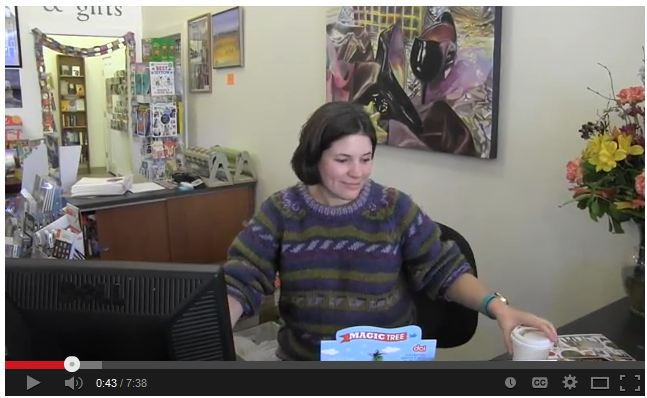
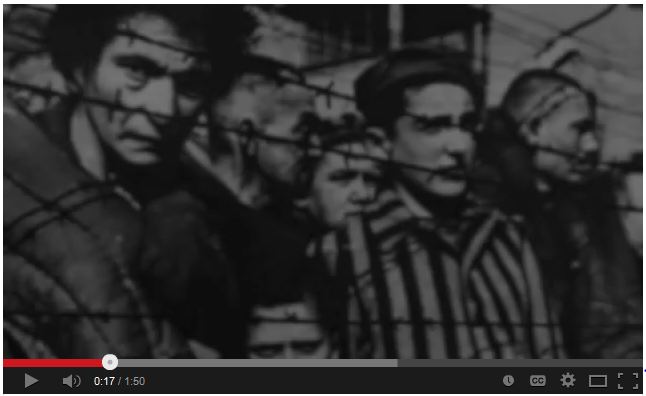 Dry Bones
Dry Bones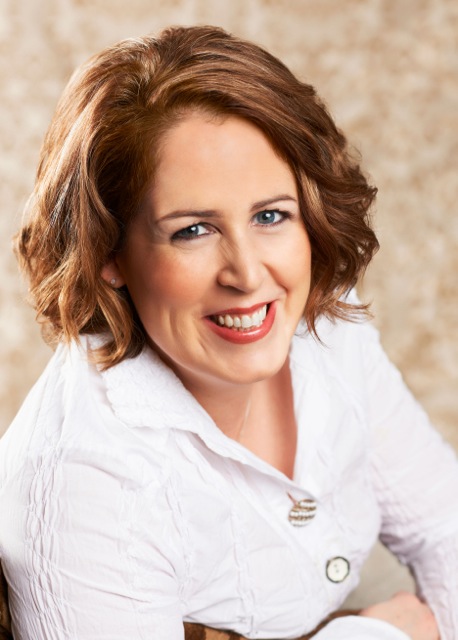
 Book you're an evangelist for:
Book you're an evangelist for: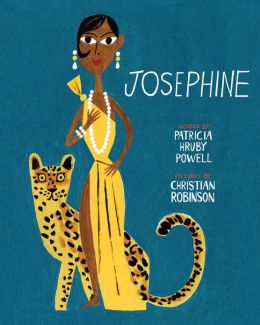 Patricia Hruby Powell (Blossom Tales) begins this biography of the larger-than-life Josephine Baker (1906–1975) with her 1927 quote, "I shall dance all my life.... I would like to die, breathless, spent, at the end of a dance." A dancer herself, Powell uses rhythmic language like the beat to this life well lived, and chronicles how Baker fulfilled her wish, leaving this life after a triumphant opening at the Bobino theater in Paris, at age 69.
Patricia Hruby Powell (Blossom Tales) begins this biography of the larger-than-life Josephine Baker (1906–1975) with her 1927 quote, "I shall dance all my life.... I would like to die, breathless, spent, at the end of a dance." A dancer herself, Powell uses rhythmic language like the beat to this life well lived, and chronicles how Baker fulfilled her wish, leaving this life after a triumphant opening at the Bobino theater in Paris, at age 69.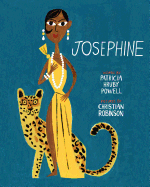
 The Book Thief is a story of children swept up in war. Death, who narrates, takes an interest in the vibrantly alive Liesel. In the novel, we see her through Death's eyes. In the film, the voice of Death opens and closes the story, and breaks into the film perhaps half a dozen times. But we see the atrocities of World War II firsthand--Kristallnacht, the carting off of neighbors, Jewish prisoners marched through the streets. Readers can put down the book, take a break. But moviegoers cannot escape the images of cruelty.
The Book Thief is a story of children swept up in war. Death, who narrates, takes an interest in the vibrantly alive Liesel. In the novel, we see her through Death's eyes. In the film, the voice of Death opens and closes the story, and breaks into the film perhaps half a dozen times. But we see the atrocities of World War II firsthand--Kristallnacht, the carting off of neighbors, Jewish prisoners marched through the streets. Readers can put down the book, take a break. But moviegoers cannot escape the images of cruelty.